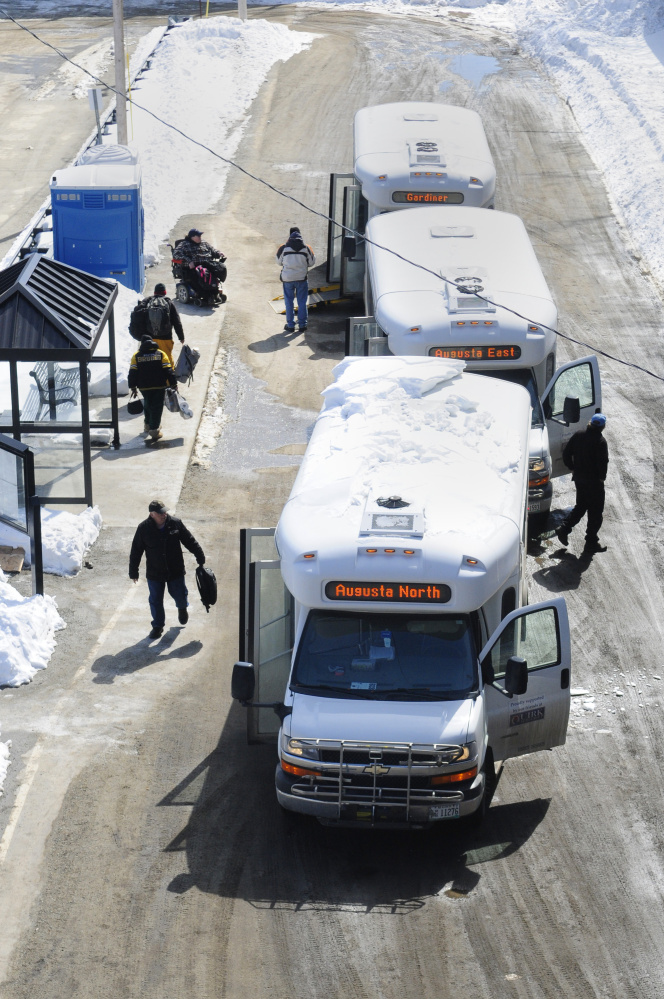AUGUSTA — By a vast majority, older adults in Maine, where 72 percent of the population lacks access to public transportation, plan to drive until they can’t. And when they can’t, most have no plan for how they’ll get anywhere.
But officials and volunteers are working on plans to create ways for those seniors to “age in place” and still be able to get to medical appointments, grocery stores and coffee shops, according to speakers at a forum titled “Getting There When You Can’t Drive.”
Those plans include a volunteer driver pilot program in the preliminary stages in Augusta, which could serve as a national model, and the more than year-old Neighbors Driving Neighbors volunteer driver program, which has already provided hundreds of rides to senior citizens in Belgrade, Fayette, Mount Vernon, Rome and Vienna.
About 70 people attended the forum Sunday afternoon at the University of Maine-Augusta.
Bob MacDougall, of Augusta, chairman of the Augusta Age Friendly Committee, which formed last year to seek to make Augusta a move livable community for all ages, said he recently agreed with two other committee members to work on creating a voluntary driver network based on a new model that the Independent Transportation Network of America wants to try out in Augusta and Tennessee with a goal of using the pilot as a nationwide model.
MacDougall said he and other participants will undergo about five months of online training to test out ways to create such systems that could extend the ability of seniors to age in place by lining up volunteers to provide rides.
“As a pilot city, we’ll get one of the first cracks at giving rides under this program in Maine,” MacDougall said. “It’s going to be volunteer-based. Community-based. We can create and tailor our own systems.”
Irene Goff, coordinator of Neighbors Driving Neighbors, said the group’s 35 volunteer drivers are the program’s core.
The local initiative’s drivers volunteer their time and receive no compensation for using their own vehicles in the program. She said the reward for drivers is the social interaction with their riders and the positive feeling that comes from helping someone.
“The socialization is almost as important as the rides for both the riders and drivers,” Goff said. “And it’s the best kind of volunteer opportunity, because it is real time. It’s not something like stuffing envelopes. You get to help somebody. See them in the face, because they’re right there. And they’re very grateful.”.
Keith Edwards can be contacted at 621-5647 or at:
kedwards@centralmaine.com
Twitter: kedwardskj
Send questions/comments to the editors.




Success. Please wait for the page to reload. If the page does not reload within 5 seconds, please refresh the page.
Enter your email and password to access comments.
Hi, to comment on stories you must . This profile is in addition to your subscription and website login.
Already have a commenting profile? .
Invalid username/password.
Please check your email to confirm and complete your registration.
Only subscribers are eligible to post comments. Please subscribe or login first for digital access. Here’s why.
Use the form below to reset your password. When you've submitted your account email, we will send an email with a reset code.